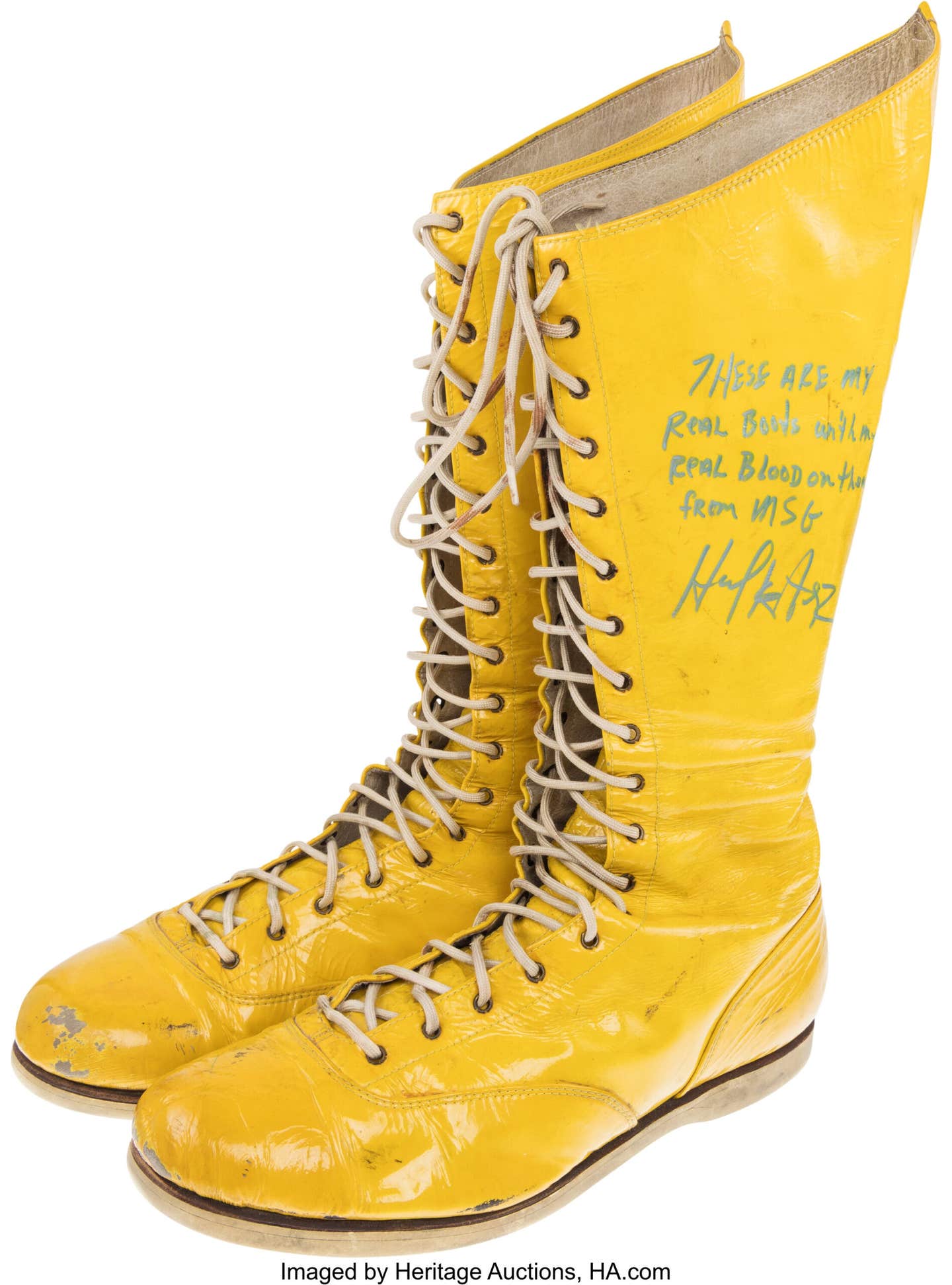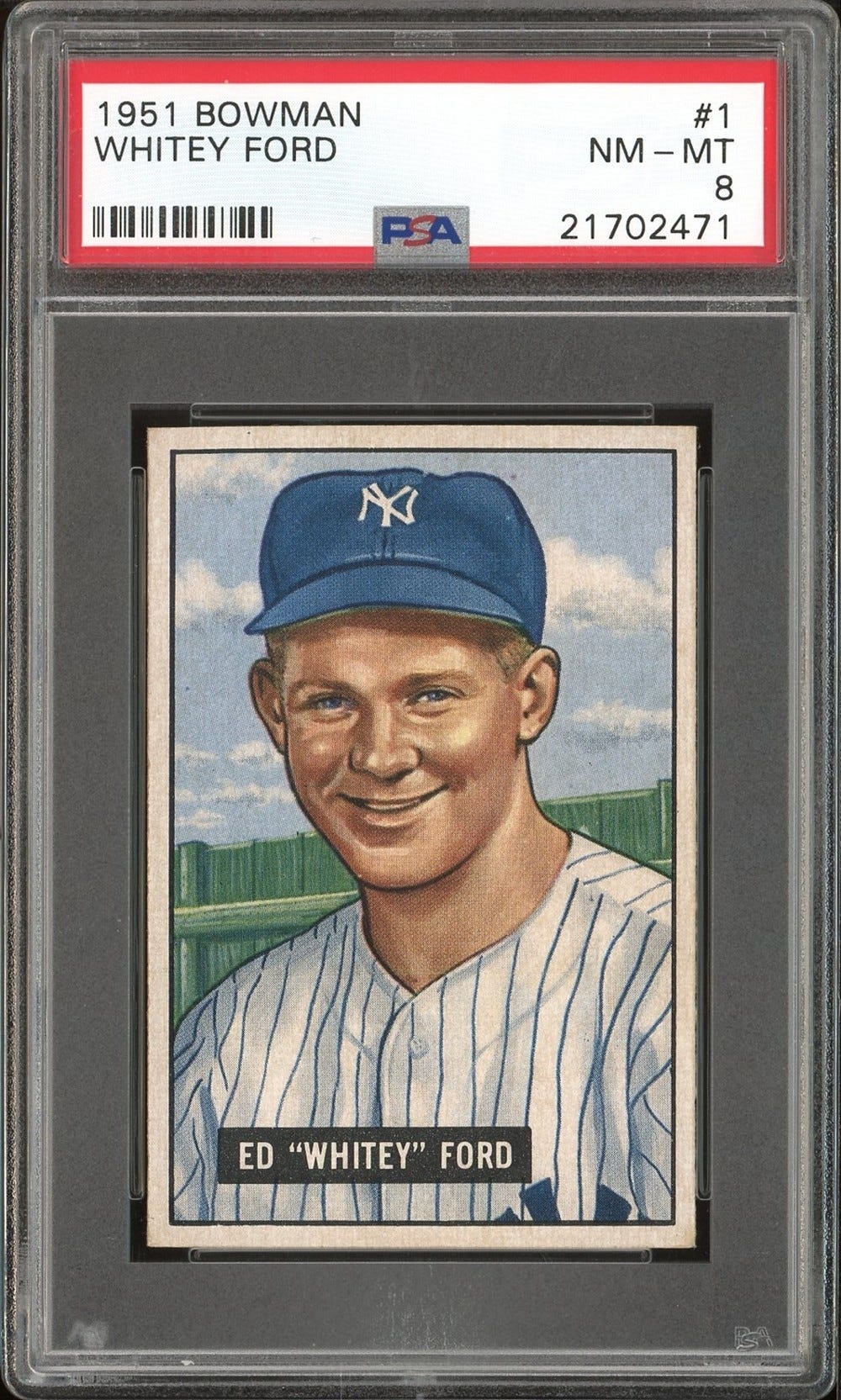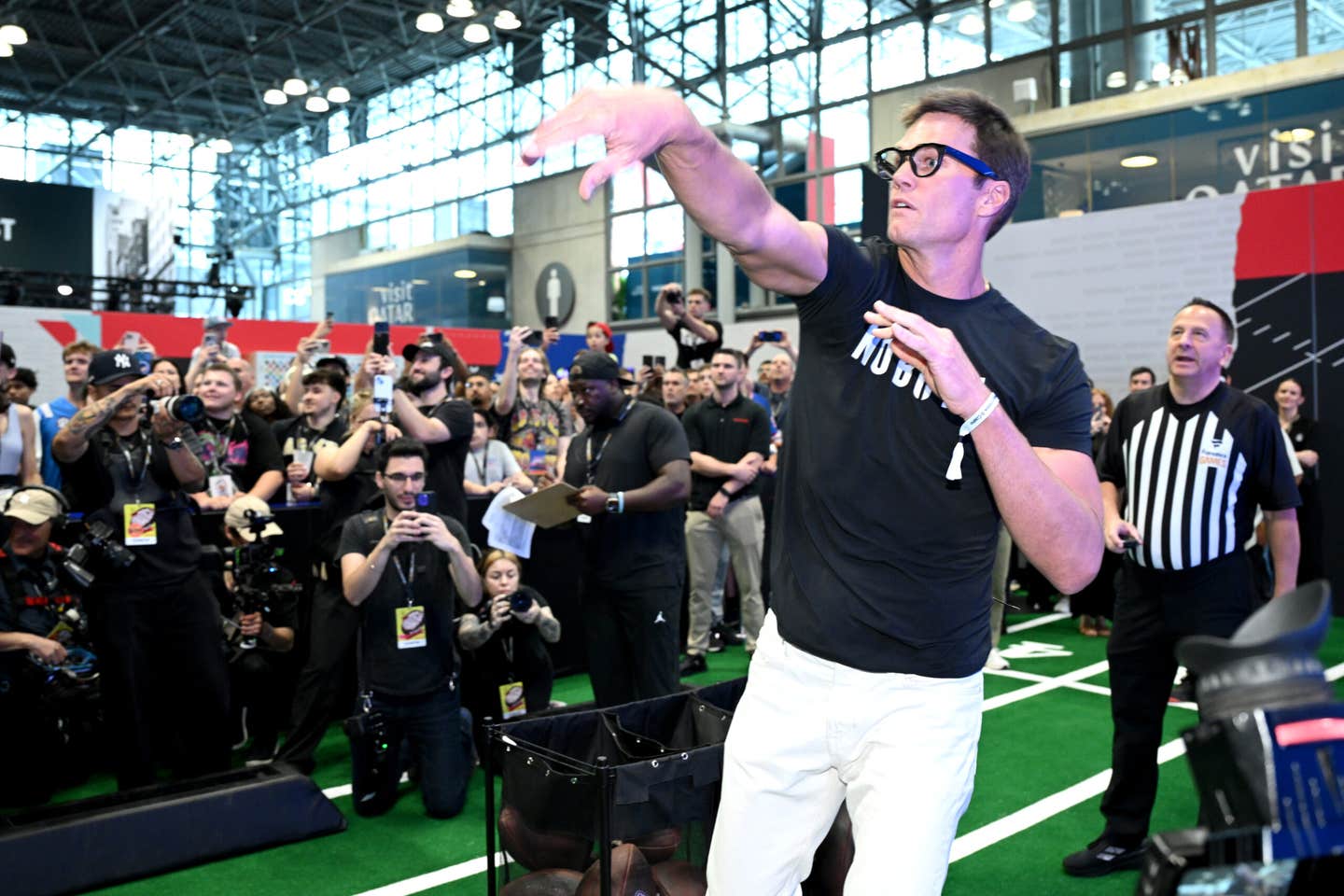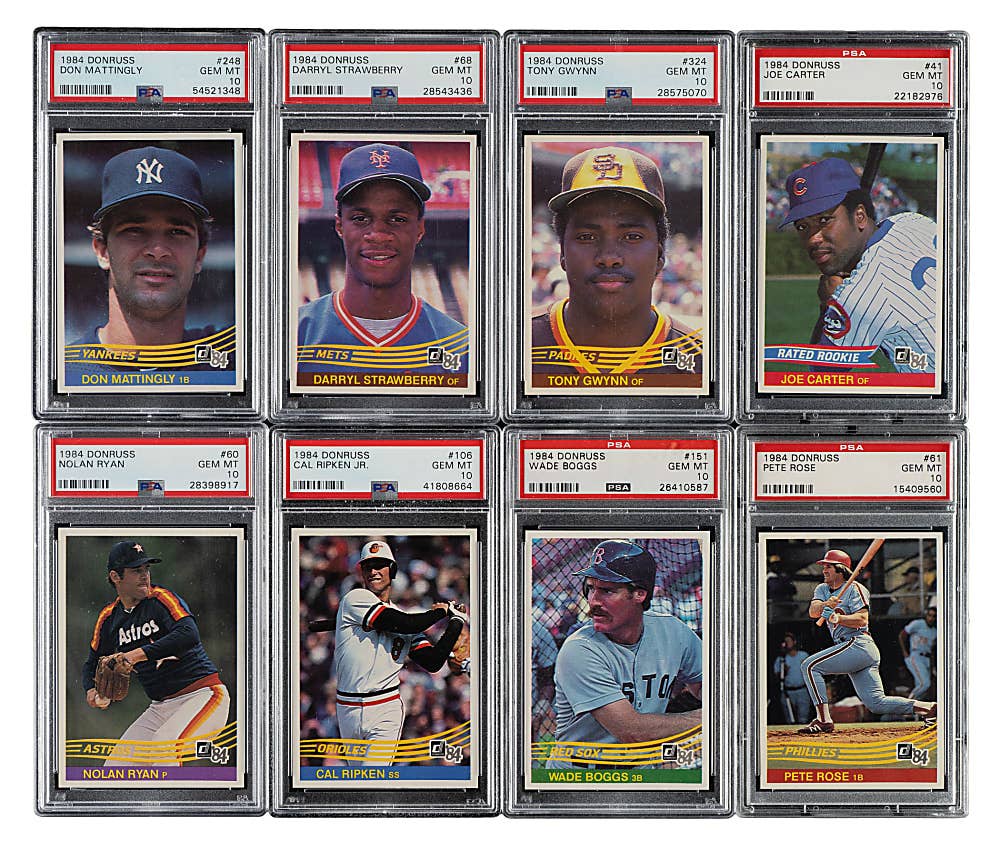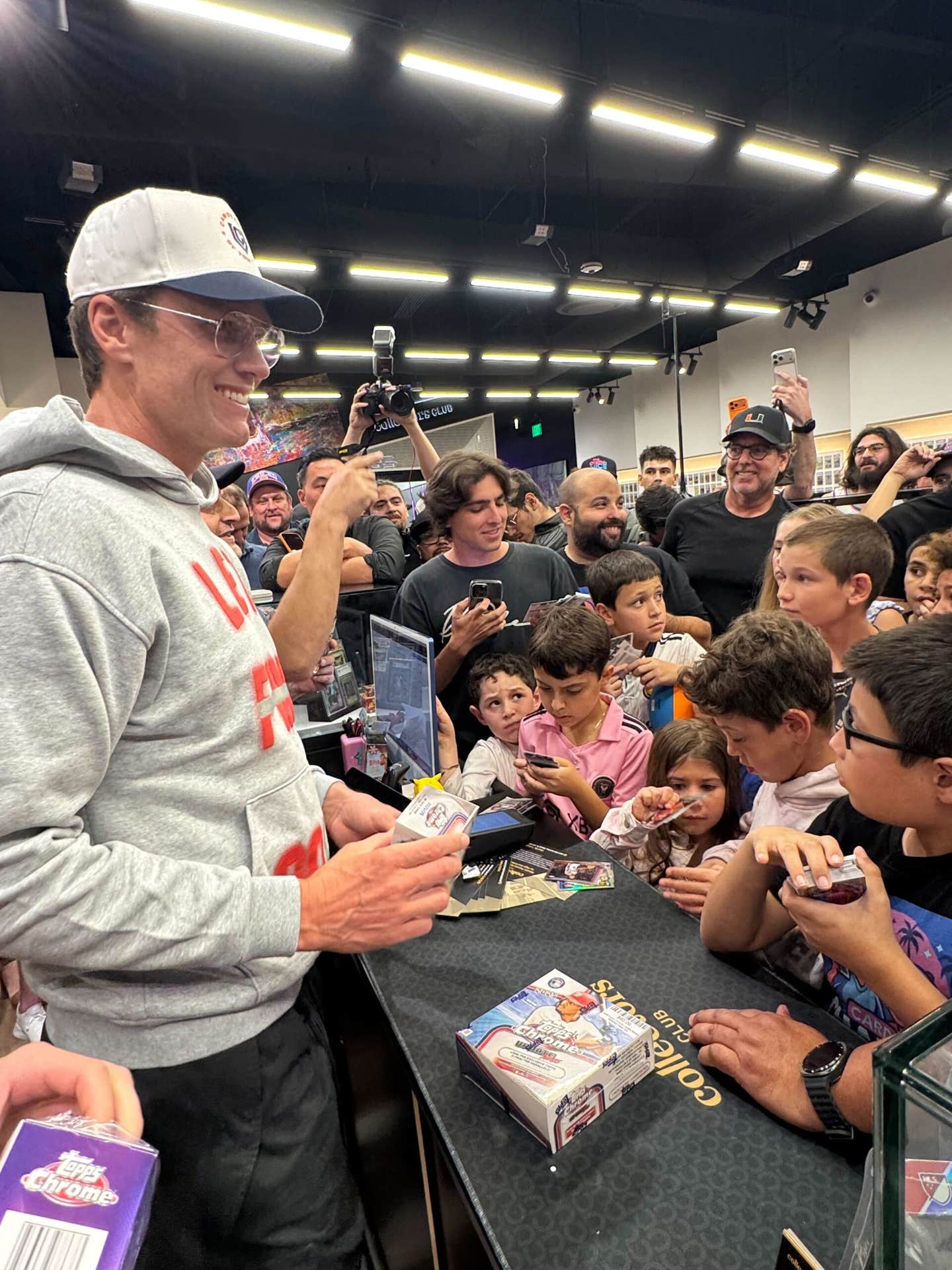News
Negotiating a price: Views from both sides of the table
By Jeffrey S. Copeland
We’ve all been there before. We’re at a show and see a card or other piece of sports memorabilia we’d love to have in our collection, but its price seems a little high.
Fueled by desire to acquire the piece, we mull over a few options: see if the dealer might be willing to negotiate on the price, pay the full price and possibly regret that we spent so much, or walk away from the table and keep searching for the item in our target price range. “What to do?” becomes the question that often must be answered quickly because others will soon be at the table—and one of them may very well be interested in the same item.
To some degree, we all differ in how we answer that question. A collector I’ve known for a long time absolutely hates negotiating with dealers. I’ll call him “Anxious Alex.” I’ve been with Alex at multiple shows and watched him pace back and forth in front of a dealer’s table while deciding if he wants to pay the listed price on an item. For Alex, negotiation is never an option. He’ll either pay the full price, or he’ll walk away and look for another one more in the price range he has in mind.
At the same time, others opt to see whether a dealer is open to negotiating the price of the item. Perhaps they choose this approach because they’ve grown accustomed to negotiating when buying a car or a house, or shopping at garage sales or flea markets. Whatever the reason, some collectors relish the challenge of negotiating. For them, negotiation is a game of strategy and part of the fun of the hobby.
One such individual is another collector friend of mine I’ll call “Discount Danny.” In most cases, Danny has the means to pay the full price of an item, but I’ve never seen him do that. Not once. Instead, before he makes a purchase, he has to feel he has made a “deal.” He absolutely refuses to buy an item if the dealer won’t negotiate at least a little on the price.
Most of us aren’t as extreme in our actions as Alex and Danny. Probably most collectors would be somewhere near the middle of the road here. However, price negotiation has a wide range of views attached to it, and I recently set out to discover what I could about the current state of this area. To do so, I interviewed both dealers and collectors to find out what they think is and is not appropriate if price negotiation takes place. I first visited with 21 collectors at several recent shows, representing a wide range of ages and collecting interests from vintage cards to autographs to a wide variety of other areas in the hobby. I asked them the following questions:
• Are you comfortable negotiating with dealers when it comes to the price of an item—or do you prefer just paying the listed price?
• If you do negotiate, how would you describe your style of negotiating?
Responses were quite revealing. First of all, 18 of the 21 said that in most of their transactions, not only are they comfortable with price negotiation, they also consider it a logical, natural, and essential part of the transaction process.
One collector said, “I’m pretty sure dealers purposely mark up their prices some so that when we do haggle on price, if we reach agreement, then both sides feel good about the sale. So, if a dealer won’t negotiate with me, I usually look for someone else in the room who will.”
Nearly all the others echoed his view. While listening to them, I asked myself, “But is it really true dealers mark up prices to build in negotiation?” I wasn’t so sure of this and made a mental note to ask dealers about this later.
One collector added another layer to this discussion by stating, “I think everyone, dealers and collectors alike, believe most transactions will have at least a little price discussion involved. This has just become a part of the hobby, for better or worse.”
From these comments, price negotiation is clearly a topic of interest for many collectors.
In terms of “negotiation styles,” those who are comfortable with negotiation gave similar responses. They believe the best strategy is to be very direct so as not to waste the time of either party. These individuals said they typically use one of the following three questions to begin price negotiation with dealers:
• “What is your best price for this item?”
• “Can you please do a little better on this?”
• “Would you take (fill in lower price here) for this?”
While the wording was a tad different from person to person, just about all the “negotiators” said a version of this question was always appropriate to ask: “Is your price firm, or are you open to an offer?” Notably, the common denominator here is these collectors respect the value of the dealer’s time at shows and want to help, as one person put it, “keep the line moving” by using their questions to cut to the chase right away.
While I visited with these collectors, a few unexpected comments came up. Three said they are quite superstitious about price negotiation. One said he always wears the same shirt to shows because he never fails to get the best deals while wearing it. I asked him if maybe the dealers didn’t think he was down on his luck and had only the one shirt. He just smiled and said, “Well, that probably doesn’t hurt.”
Another who collects golf memorabilia said when going to shows he always keeps his “lucky golf tee” in his right pocket because “It always brings me luck when I buy things!”
The third individual said his lucky charm is his wife; dealers always seem to give him a better price when she is at his side. That day he was lamenting the fact she was home with a bad cold, and his negotiating was not going well.
I also spoke with three collectors who reported never negotiating on the price of an item. All were quite eager to share their reasons. Quite simply, they just don’t believe in negotiating. One said he used to sell sports memorabilia and remembered how difficult it was to make a profit at shows, especially the smaller ones; therefore, he now doesn’t have the heart to ask for a price reduction.
Another said pointedly, “You wouldn’t go into Home Depot and say to the guy behind the paint counter, ‘How about selling me that gallon of paint for eight dollars off?’—would you? I don’t see any difference in that and asking for cheaper prices at card shows. Just seems wrong to me.”
The last individual said he stopped negotiating because when dealers turned down his offer, it reminded him of when his mom used to send him to his room for “mouthing off” and other bad behavior. Poor guy. Not only did his mom throw out his baseball cards when he left home, she ruined his future negotiating skills as well.
After visiting with the buyers, I moved to the other side of the table and interviewed 10 dealers, ranging from those who set up at only small shows to those who sell cards and memorabilia nationally. Granted, this is a small sample size, but I tried to choose dealers I’ve seen on the card show circuit for a good number of years so they would be presenting an “experienced view” on the subject. I began by asking each if, as a regular practice, they were open to negotiating with buyers on the price of an item.
Eight of them gave this as an immediate response: “It depends!” When I asked them to explain, these dealers—to a person—said one of the greatest variables influencing price negotiation is something they imagined buyers seldom have cause to think about: How much it costs dealers to participate in shows.
One of the smaller dealers I interviewed, a gentleman who specializes in 1950s through 1970s baseball star cards, shared with me that his travel, lodging, meals, and table fee for the two-day show came to $1,200. He was out this much expense before any buyers walked into the room. He then went on to add this as a typical scenario: “At this show, I’ll have to sell $2,400 worth of cards before I cover my expenses and see a penny of profit, profit I live on and use to purchase other items for my inventory. That’s a lot of cards to sell in two days, and it also means I need a steady stream of customers for the show to be worthwhile.”
This dealer also wanted another “fact of doing business” relayed to others here. He wasn’t saying the mark-up on his items always came to 100 percent of his original purchase price for those items. Rather, if he buys a card for, say, $50, he has to sell that same card for roughly $100 because within that price would be his other costs (lodging, food, transportation, and so forth). Therefore, when the other expenses are factored in, in reality he may be making just 10 percent profit on that card.
His final comment was also quite revealing. Just how much he is willing to negotiate on prices at a show frequently depends upon how well the show is attended and how much he is selling. Other dealers told similar stories, and after hearing about the expenses they face in order to be at a show, I’m now surprised they are ever willing to negotiate on price at all.
However, all the dealers agreed that they’ve discovered most of their customers have come to expect price negotiation. Therefore, before each show, they address the following questions, which directly influence their willingness to negotiate on prices:
• How long has the item been in inventory? If they have been dragging the item from show to show for quite some time without any buyer interest in it, then increased room for price negotiation is added. A dealer at a recent show told me for nearly a year he had been carrying around a nice grouping of 1954 Red Man baseball tobacco cards (with tabs), and over that time only two or three customers had even asked to look through them. I said that surprised me, and the dealer immediately snapped his head around and said, “You can find out how much I’m ready to negotiate on these—make me an offer.” I smiled—and politely declined.
• How popular is the item? For example, one dealer told me Aaron Judge rookie cards are still being snapped up just about as soon as he places them on the table. In cases like this, there isn’t much reason, from a dealer’s perspective, to negotiate on price. In short, the more popular the item, the less these particular dealers feel a need to budge from their original price.
• What is the “supply and demand” for the item? While this area overlaps some with the popularity of an item, according to the dealers I interviewed, it differs in this way.
Other than what one dealer called the “hotter than a firecracker” cards and related items (i.e. – memorabilia associated with Aaron Judge, Cody Bellinger, Shohei Ohtani, and so on), there are items that are always popular, and the supply of these items is always of great issue. Rookie cards of Hall of Famers and autographs of current and former stars/sports celebrities all fit this area nicely because the dealers see limited numbers of these, and the demand for them is constant.
• Has the buyer been a long-time customer? One dealer stated, “If I’ve been dealing with someone for a long time and we’ve established a good business relationship, then I’m much more willing to help out with the price. Repeat customers are highly valued.”
I mentioned earlier there were two other dealers who felt differently about price negotiating. These individuals, both of whom also sell on the national level, said they prefer to study their inventory in advance of shows and mark the lowest possible price they can offer for each item. By doing so, they don’t have to spend time negotiating, which is a plus for them because their tables are usually quite crowded, and the time helping each customer is precious. Both noticed they often end up with the best “marked prices” at shows, but said many buyers don’t realize this if they haven’t studied the prices around the room before getting to their tables. Therefore, when these dealers won’t negotiate on price, some buyers get upset and leave their tables—an unfortunate outcome but unavoidable when prices are marked down to rock-bottom from the start.
During the interviews I asked the dealers to share what they appreciate most when customers approach them about negotiating a price for an item. I also asked them what they don’t care to hear when negotiation is initiated. These responses offer insights into the hobby that many collectors may not have thought about before.
What dealers appreciate:
• Be polite. One dealer suggested the same thing my grandmother always said to me, “You’ll catch more flies with sugar than manure.” All agreed about 95 percent of buyers are polite and friendly, but the other five percent can be a challenge because of their rudeness. Another dealer said at times customers treated him poorly, like “a traveling carnival worker in one of those old-time movies—like they expected me to take advantage of them and then skip town.��� I asked this dealer, who sells cards only part-time and at local shows, what he did away from the hobby. In his “day job,” he is an attorney for several non-profit and charitable organizations in the local community.
• It is perfectly fine to ask straight out if the dealer’s price on an item is firm or whether some negotiation is possible. Dealers have grown accustomed to receiving this question and don’t mind it one bit. One of the more experienced dealers put it this way: “I’m not running a museum. A reasonable offer never offends. I have to sell this stuff.
So, I’m certainly open to negotiation if the customer asks if that’s possible.” Along with this, all agreed that either of two questions is always appropriate: a) “What is the best price you can do on this item?” and b) “Would you please consider an offer of (fill in offered price here)?” Again, what’s most important according to the dealers is to ask the questions politely.
What dealers don’t care to hear:
Don’t start your negotiation strategy by bringing up the price for the item you believe to be on eBay or other internet sales sites and suggest you can purchase it more cheaply there. Internet sales and in-person sales at shows, the dealers say, are not the same for many reasons. One dealer stated, “I often ask customers who bring up internet prices just how much postage would cost them to have a similar item shipped to their homes. That usually puts an end to that line of thought right away.”
• Don’t downgrade the dealer’s item in an attempt to obtain a lower price—unless you truly believe you may have discovered something about the item the dealer might have missed (which, on occasion, happens). Any flaws in an item have likely been factored in by the dealer when setting a purchase price. One dealer mentioned a customer who picked up an older and well-worn star card priced at $40, shook his head several times, and said loudly enough for all around him to hear, “This card has more creases than my grandmother’s face. You’d be lucky if I gave you ten dollars for it.” A transaction did not result.
• Don’t “demand” a price for a card. One dealer recalled an individual who practically shouted at him, “I want you to take ten bucks off this #@$$ card!” Another dealer remembered a person who barked, “How can you charge these ridiculous prices? You should be ashamed of yourself. I want this card for half your price.” Again, no transactions happened under these conditions.
• Don’t say, “I doubt you have much in this,” and expect a reduction in price. This falls under the old “sugar/manure” proposition.
• Don’t begin negotiation by saying, “I’ve seen this cheaper all around the room.” According to the dealers, the problem here is that there is no way for them to know if “apples are being compared to apples”—whether the items in question are truly exactly the same. Several dealers said their typical response to this is a polite version of “Then perhaps you might want to check those dealers out again.”
• Don’t point out that the piece in question used to be readily available for (fill in price here) since everyone knows that the prices of most items were cheaper “back-in-the-day.” That was then—this is now—and nostalgia for past prices won’t pay today’s bills.
• Don’t look for “haggle room” on very inexpensive items. For instance, one dealer said he had a “Quarter Box” on his table at a show, and an individual took out two items and asked, “Can you do a little better on these?” The dealer said he just smiled and looked away.
And finally, what about the commonly held belief so many collectors have that dealers actually mark up prices in order to leave room for negotiation? All of the dealers repeated, “It depends.” It depends upon the same factors previously discussed.
However, one dealer expanded upon this: “Building in room for negotiation is a ‘slippery slope.’ That is, if we build in some haggle room and the price is set too high, then buyers might not even bother asking about the piece. Everyone loves a good deal, so I set my prices so that if negotiation does take place, the buyer will feel good about the sale. I also know the better the customer feels, the more likely that person will be to come back to my table again to do business with me.”
In the end, after I spoke with both dealers and collectors, this conclusion became apparent: many hobbyists now fully expect price negotiation to be a part of the transactions that help them build up their collections, and all dealers consider price negotiation appropriate if approached in a respectful manner. At the same time, I now understand more than ever just how expensive it is for dealers to set up shop at shows—and how this often influences their willingness to negotiate prices of items. I have more respect and admiration for what they go through to help the rest of us enjoy this great hobby of ours.
One dealer summed up this whole area quite well when he said: “This is a hobby. Nobody has to have these cards, autographs, bats, or jerseys. The fun of all this is truly what is most important. That’s why I think a little price negotiation is really good for the hobby. After all, who doesn’t like a good deal? If my buyers are happy after we set a final price, then I know I’ll also be happy as well. That’s what this is all about. At the end of the day, we should be working together to help make sure the hobby is enjoyable, educational, and downright fun for everyone involved. Price negotiation, done right, will always be a part of this.”
I couldn’t agree more.
Finally, I’d like to ask SCD readers to respond to three questions for a possible follow-up article.
First Question: The dealers interviewed were forthright when stating what they appreciate, and do not appreciate, when customers come to their tables. However, with buyers, there was no clear consensus related to what they like, and do not like, most about the dealers they come in contact with at shows. Therefore, what qualities/behaviors of dealers do you most appreciate and not appreciate when doing business with them?
Second Question (and also an area where no consensus appeared): Do you believe there are times when it is not appropriate to negotiate on price? (for example, in your opinion, what is the lowest price where you feel it’s fine for a collector to ask for a price reduction?).
Third Question: I found it interesting just how many collectors have routines/superstitions/habits they follow when attending shows. Do you, or someone you know, have similar behaviors that are generally followed when looking for items to add to collections? I’d appreciate it if you’d send your thoughts on these subjects to me by way of the e-mail address listed below. I will, of course, omit names and share your thoughts with others in a future piece.
Happy collecting—and negotiating—everyone!
Jeffrey S. Copeland is a contributing writer for Sports Collectors Digest, as well as an author. He can be reached at jscottcope@gmail.com.



